#XVIIIth century
Explore tagged Tumblr posts
Text

Carlo Giuseppe Ratti – Allegory of the thirteen values of the republic: the Peace embracing the Justice (after 1783)
#my favorite couple <3#art#art history#carlo guiseppe ratti#italian#lesbian#lesbian art#wlw#women#fine art#painting#oil#oil on canvas#allegories#justice and peace#XVIIIth century#18th century#female homoeroticism
239 notes
·
View notes
Text

The Hours of Christ's Suffering by Unknown Artist, painted in the early XVIIIth century in Korsun, Cherkasy Region
#ukrainian art#ukraine#religious icon#korsun#cherkasy#namu museum#XVIIIth century#early modern period#Baroque art#Ukrainian Baroque
104 notes
·
View notes
Text
Liebst du das Dunkel Tauigter Nächte? Graut dir der Morgen, Starrst du ins Spätrot, Seufzest beim Mahle Stößest den Becher Weg von den Lippen? Liebst du nicht Jagdlust Reizet dich Ruhm nicht Schlachtgetümmel Welken dir Blumen Schneller am Busen Als sie sonst welkten Drängt sich das Blut dir Pochend zum Herzen?
— Karoline von Günderrode (1780-1806)
3 notes
·
View notes
Text
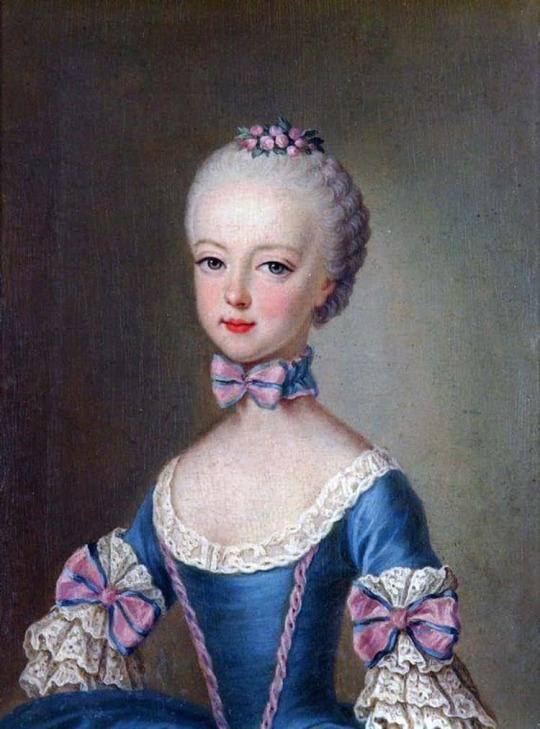
1 note
·
View note
Text
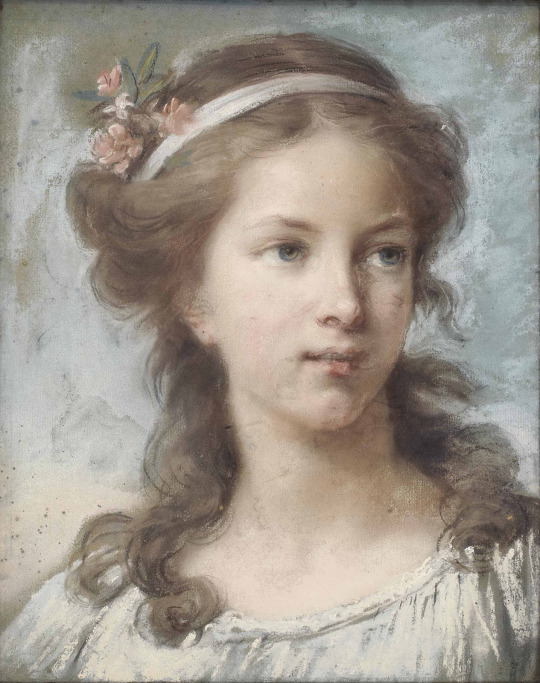
source: @lcrdbyron
Élisabeth Vigée Le Brun (French, 1755-1842)
Autoportrait à l’âge de 16 ans
38 notes
·
View notes
Text
asileverse!AU: birthdates of characters (Charlie's gang + overlords) + some notes on events somehow related to the period of their lives

Zestial Morde was born in the year of the collapse of Western Roman Empire
Husk saw the biggest Black death (plague) epidemy
Carmilla died with daughters during the Burgundian Wars (1474-1477)
Rosie's born in the year of the Battle of Towton, the bloodiest battle during the Wars of the Roses
during Vega's lifetime, Charles the Enchanted, the last of the spanish Habsburg dynasty, was the ruler of the Kingdom of Spain
XVIIIth century was a period of great expansion of atheism within christianity
Vox, japanese by roots and american by birth, was subject to forced temporary eviction after Emergency Decree 9066
Angel's parents took part in sicilian struggle against nazis
#hazbin hotel#hazbin hotel: asileverse au#hazbin hotel au#asileverse#hazbin hotel rewrite#charlie morningstar#vaggie#angel dust#alastor#niffty#husk#sir pentious#cherri bomb#zestial morde#carmilla carmine#rosie#rosie the cannibal#vox#valentino#velvette
53 notes
·
View notes
Text
So, I was a queer teenager about fifteen years ago. Fifteen years doesn't seem like much, but in TV History, fifteen years is not even BBC Sherlock times yet. So, in Queer TV History, it's basically like comparing modern times to the XVIIIth century : there was the beginning of an idea of equality and justice, but we were clearly not there yet.
The sort-of-gay pairings I saw on TV didn't end up together, or only in some niche content I couldn't get my hands on on national television - and that was where we watched shows at the time. Sometimes they were gay-coded, but what happened most of the time was : the queerest one of the pair ended up alone, living his best quirky-lonely life, while the most straight-passing found a spouse and a respectable straight marriage.
At the same time, I was falling in love with my very queer best friend. These were scary times, we were kids. When she ended up rejecting me and running off, not speaking to me again and going into straight relationships, I felt like I deserved it. That experience, plus the way I saw myself on television, shaped the way I saw my love life. Like I couldn't truly get one.
Now, shows have changed. Shows are queer, and watched by everyone. There isn't just one sort-of gay relationship on the screen, there are several in the same show! And they fall in love, and kiss, and break up, and get back together, and are shown being gentle and loving and couples! Actual couples. I still have to pinch myself sometimes. Before they get together, and despite the entire show screaming at me that it's gay, I still feel like I'm getting queerbaited. I brace myself, I wait for the unavoidable rejection and pain and loss. And yeah, sometimes it's dramatic. But it's always real now. They kiss. They love each other. There's no shame in that anymore.
Damn.
I wonder what it would have done to me and my best friend if we'd seen these shows fifteen years ago. How different I'd be today. I'm a bit sad that I didn't get that, that I was shaped so differently by contents that wanted to make me feel like I didn't quite belong, that I didn't quite deserve to be happy.
I'm sure excited for you younger lots, though. Have fun <3
#ineffable husbands#good omens#our flag means death#blackbonnet#queer#queer community#sherlock#johnlock#sherlock bbc#personal#heartstopper
608 notes
·
View notes
Text
oh hey do you know what insane piece of XVIIIth century jewelry/craft I found in a museum

Musée Carnavalet
pictured: a tobacco box featuring famous rivals Voltaire and Rousseau about to engage in old Enlightenment yaoi. idk. they're very very close together. very.
43 notes
·
View notes
Text
Ok, i have this thing floating in my mind and i have to share it! (This is my brain rotting between history and the marauders)
So, imagine, we're in the XVIIth/XVIIIth century, and Sirius and Remus live in a little town, where they don't have much money. At this time, mirror where like, super expensive and super rare, so not a lot of people got to admirr their faces
So (this is where it gets interesting!) imagine Sirius and Remus who want to know what they look like!
If Sirius asked his family, they'd told him to look at his brother, and he'd known. But Remus looks at him, truly, and tell him the exact shade of his eyes (like the sea before the storm, deep grey, full of promises and unknown), he describes the face he spent too long admiring in all it's little detail! (Like the mole under his lips, which Remus, i quote, always found fascinating)
And Sirius described Remus, not saying a single bad thing about the scars on his face (he was attacked by a dog as a kid, he was lucky to survive), and he tells him how he loves the scar on the bridge of his nose that always brings Sirius from Remus' lovely eyes (they're like autumn leaves, and the colour of the walls of the home that keep them warm) to his plump lips, and thd little skin that Sirius wants to feel under his skin (since Remus always bites his lips, he's just doing it, as Sirius tells him that)
Anyway, two teens, discovering who they are through the love of the other, kissing in a meadow, on a Sunday afternoon, after havinc heard of the importance of love
And they do love, they love each other so much
And as old men, they continue to describe their faces to the other, even when their eyesight diminishes, because they know the other's traits forever
Two boys who can't access mirrors, and who will find themselves prettier than if they ever had access to it
#marauders#sirius black#remus lupin#remus x sirius#fanfiction#alternate universe#xviii century#xvii century#wolfstar#harry potter#the brainrot is real
34 notes
·
View notes
Text

Aten - Sun God, Solar Disk Talon Abraxas
The Cult Of Aten The God And Disk Of The Sun, It's Origin
Amongst all the mass of the religious literature of Ancient Egypt, there is no document that may be considered to contain a reasoned and connected account of the ideas and beliefs which the Egyptians associated with the god Aten. The causes of his rise into favour towards the close of the XVIIIth dynasty can be surmised, and the principal dogmas which the founder of his cult and his followers promulgated are discoverable in the Hymns that are found on the walls of the rock-hewn tombs of Tall al-'Amarnah; but the true history of the rise, development and fall of the cult can never be completely known. The word aten or athen is a very old word for the "disk" or "face of the sun," and Atenism was beyond doubt an old form of worship of the sun. But there were many forms of sun-worship older than the cult of Aten, and several solar gods were worshipped in Egypt many. many centuries before Aten was regarded as a special form of the great solar god at all. One of the oldest forms of the Sun-god worshipped in Egypt was HER (Horus), who in the earliest times seems to have represented the "height" or "face" of heaven by day. He was symbolized by the sparrowhawk, the right eye of the bird representing the sun and his left the moon.
42 notes
·
View notes
Note
Do you have an idea of disability as part of redemption arc ? Let's say, I have a character who's a professional executioner, from a dynasty of professional executioners, XVIIIth century. He was a real person, who eventually became paraplegic. Since, I want, for my historical novel to redeem him...He started torturing people at fourteen, maybe younger, and killed for the first time at age 18. He's 33 when the story started, and became hemiplegic/paraplegic (documentation isn't clear on this) at age 35, and was in a social circle of executioners and torturers since birth. Realistically, maybe, he would have little to no sense of belonging beyond that of executioner, unless maybe as head of house, which is again, liked to his position as executioner. He's a third class citizen, but an absurdly wealthy one, and no longer being able-bodied doesn't mean he can stop depending on the executioner buisness, it just means his son has to start killing at 15.
How do you think a man who worked for 13 years as master executioner of Paris, but officially because one at age 7, insuring his wealth but also the envy of his colleagues, would cope with being hemiplegic/paraplegic. Also, one of his potencial rivals was a man who in all likelyhood beated his mother, and probably him and his brother when they were at least teenagers. That master executioner was aged 35 when he lost his mobility to a stroke. The Mémoires of the Sanson family also described him a proud piller of his community, delivering charitable medical care to those in needs and one who enjoyed rough horse riding.
Thank you for your ask! This sounds like a case of redemption through disability, which is a trope that should be avoided. A disabled character can get redeemed, but it should be entirely separate from their disability.
Along with his disability not redeeming him, you should also make sure it doesn’t make him spiteful or cruel. Basically the disability should change what he can physically do, not who he is.
As for the second part of the ask, I first want to note none of our mods are parapalegic/hemiplegic, so we can’t speak for coping with these disabilities specifically. I’d recommend looking for first hand accounts of people with these conditions, or preferably seeing if you can find someone with them to ask or act as a sensitivity reader.
I don’t know much about 18th century French medicine, but physical & occupational therapy will be important as he re-learns tasks that were once easy and figure out ways to complete tasks he can no longer do. Studies show horseback riding can help stroke survivors with their recovery, though he’ll need to ride gently at first.
Have a nice day!
Mod Rot
I just want to say real quick, adding on to the case of redemption through disability, that the reason we want to avoid it is because moralizing disability is something that very much happens to real alive people every day.
Tying disability to morality often is 'disability is a moral failure' type of situation, but another way it affects people is the assumption that 'suffering' through a disability somehow makes you more 'pure' or 'better.' Like when you see some grumpy mean character get an injury and Suddenly They Understand Hardships of Others and they become a better person — sort of a mix between 'disability as punishment' and 'disabled people are innocent.'
This kind of seems like what you're doing here. There's a lot of historical fiction out there that uses real life counterparts. If you choose to do that and redeem a bad person, I can't exactly stop you. But I want you to examine why you think what's going to redeem him is the onset of his disability, rather than an understanding of what he did and attempts to do better.
Hope this helps,
– Mod Sparrow
I agree completely with what has been said and just want to add that even disorders like traumatic brain injuries and strokes that can sometimes affect not only function but also personality should not be used as a moral thing, as mentioned earlier. More realistically impacts of a stroke on personality and mood are depression (this was my main symptom even with minimal other symptoms and damage), some impulsiveness or irritability, and mood swings. The disability, again, should not make them a better or worse person inherently.
-Mod Bert
#historical fiction#redemption through disability trope#real person fiction#mod rot#mod sparrow#mod bert#subiysu-chan#tw death#tw death mention#tw torture mention
44 notes
·
View notes
Photo
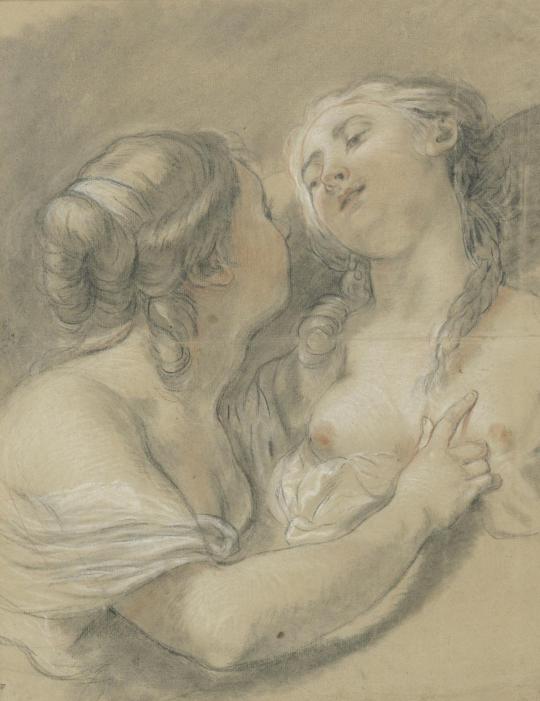
Unknown Artist (French School) – Two Women (18th c.)
#art#art history#french#lesbian#lesbian art#wlw#women#drawing#chalk#fine art#XVIIIth century#18th century#female homoeroticism
1K notes
·
View notes
Text
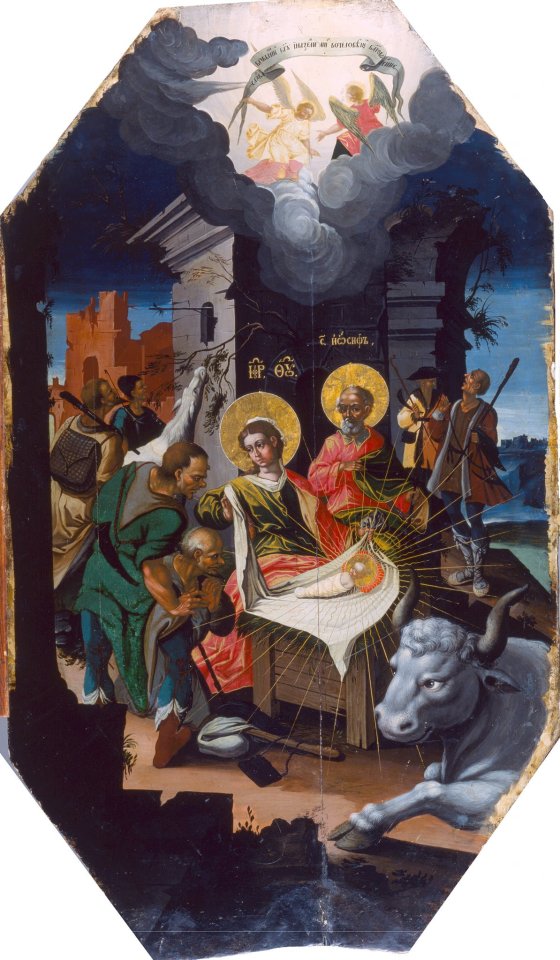
The Nativity by Unknown Artist, 1729
A fresco from the Kyiv-Pechersk Lavra
#ukrainian art#ukraine#ukrainian#kyiv#Kyiv-Pechersk Lavra#Ukrainian baroque#religious icon#XVIIIth century#nativity#Christmas
122 notes
·
View notes
Note
if comfortable, would you recommend any books? i’d be so interested in the ones you favor
Took me some time to come up with an answer since I'm pretty much omnivorous about literature and, imo, it is more difficult to decide on favorite books rather than on movies. Many books moved me and left an impression despite not being overall "my thing", like Doctor Zhivago by B. Pasternak. No idea why I reread it. I don't even like it much. Somehow I do not recall what it was about either. On the other hand there's V. Nabokov's Real Life of Sebastian Knight. Quite amusing in Russian with the translator's and Nabokov's notes on said translation (It was the first novel by the author entirely in eng).
So allow me to mostly list what I found memorable or at least remember via my bookshelf.
Apparently, I have a weakness for the doctor's diary genre. Veresaev's Memoirs of a Physician and Bulgakov's A Young Doctor's Notebook with Morphine go there. All three are autobiographical and describe interesting insights into contemporary life and relations between superstition and medicine. Bulgakov, however, should be seen as a guy who's bitter about monarchy losing.
Big fan of Dostoyevsky obviously. Humiliated and Insulted and Demons.
I fell into Medieval literature hellhole around my graduation year. Chrétien de Troyes, Érec et Énide. Or pretty much anything by him. People didn't change much since then by the way. H. Walpole the Castle of Otranto is about what people of XVIIIth century believed Medieval times to be. Malory is to blame. Malory is for when you have too much free time. Just like him. He apparently was in prison when he wrote le Morte d'Arthur. Despite the grandiose flair it is a very frivolous retelling of vulgates. Malory was a Lancelot fanboy and made sure he's the way he wants him to be. Again, I do not forgive Galehaut's erasure. Prithee, how was his best boy Lancelot introduced to Guinevere?
Florian Illies, 1913 and 1939 cycles(?) can give you have a good grasp on the scale of events and how close were different historical figures and their relationships. Also a quite pleasant starting point for history of arts of 20th century if you feel intimidated by all names and dates. Around there I got my liking for T. Mann's work.
J. Cocteau's Diary of an Unknown is likely the book I'd call the most close to my heart, but do not expect much. It is a pleasantly written memoir by a man of arts. Easy to read and light. Both are a positive and negative aspects. In a way it's shallow. I wish to know if that is because of the author's views and personality.
A special addition is Shakespeare's Richard III with Volovich's illustrations. A beautiful book. Probably what I'd consider the best reading and design for the play. I'd recommend to look up S. Brodsky's artworks for Romeo and Juliet too. A good book sometimes is about the design too.
I hope something on the list would catch your attention and help you discover something new!
8 notes
·
View notes
Text
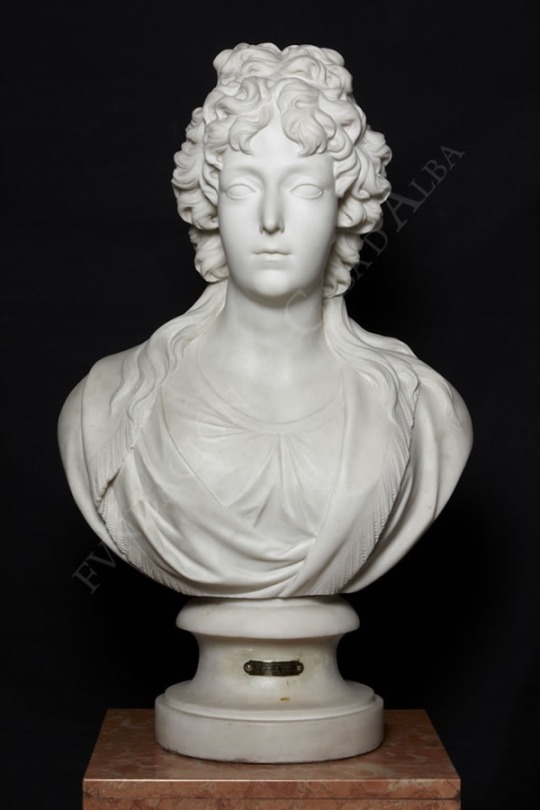
#duchess of alba#maria teresa de silva#bust#statue#xviiith century#18th century#Juan de Adán Morlando#María del Pilar Teresa Cayetana de Silva y Álvarez de Toledo
0 notes
Note
Never knew I needed Sherlock in a kimono this bad 😍 Fanart that recreates cannon is really cool, but I think fanart that adds something brand new to the world that we've never seen and wouldn't ever get to see otherwise is on a whole other level of awesome, like it makes me incredibly happy yet it only exists because of you! So thank youuu!!! 💕
Hi anon ^^
Thank you so much for enjoying my new Sherlock series and for taking the time to contact me, it's very kind of you. 💗
Never knew I needed Sherlock in a kimono this bad 😍
Not the art you wanted but the art you needed apparently. 😂
I had the idea after going to an exhibition devoted to kimonos at the Jacques Chirac Museum of Branly Quay in Paris. You had all sort of Japanese kimonos (obviously 🤓) but also "western kimonos" that showed how Japan has been a great influence in western fashion for centuries now (but also an influence in movie costumes. You even had Amidala's costume displayed ! ^^)
The idea to draw Sherlock in a kimono came after I saw these two pieces:

These garments were called a "banyan wrapper" (XVIIIth century). The one on the right dates back around 1720, pure silk, the fabric was dyed using a resist paste applied through a stencil (katazome). A lot were mass produced but these ones were orders.
Anyway, kimono fabric was imported from Japan to Europe by the Dutch in order to make beautiful dressing gowns like the ones above. Flower embroideries were popular but also colorful and shiny fabrics. When I went back home and had a look at the pics, I had a laugh and thought that Sherlock, being the absolute drama queen that he is, would absolutely own a kimono, even in the 1880s.
I tried several colors but bright red was the one that fitted him the best ! I love drawing Sherlock wearing blue (and I did it HERE on Twitter) but the red kimono on him was *chef's kisses* 🤌👨🍳
So thank youuu!!! 💕
No please! Thank YOU for enjoying my art so much! And thank you also to all the artists who create fan art. It's not because I'm an artist myself that I don't appreciate it. So many great works out there!
Have a great Sunday 💗
Edit: a big thank you to @semiprofessionalmom for their help with the post (see comments section)
58 notes
·
View notes